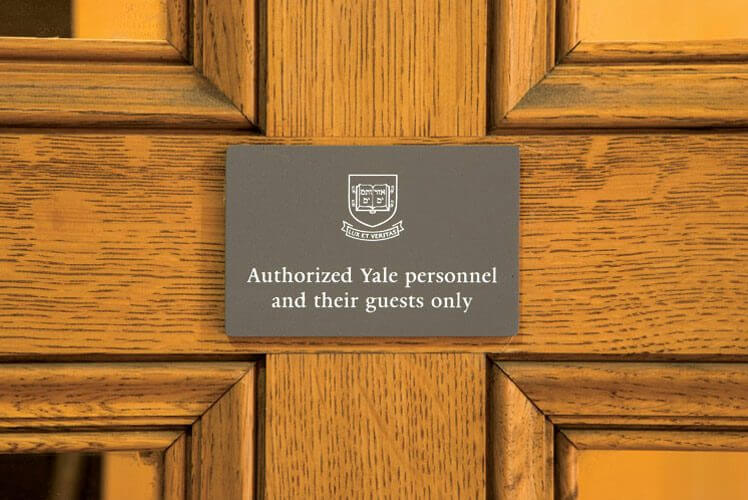
Professor Caplan thinks students are wise to the true value of a degree, which could help to explain why almost no student ever audits a class and why students spend only about 14 hours per week studying, down from 24 hours per week in 1961.
It’s a query that would have been unthinkable a generation or two ago. College was once—and in fairness, to a large extent, still is—viewed as a path to the middle class and a cultural rite of passage. But those assumptions are, on many fronts, being challenged. Radical changes on the cost and benefit sides of the equation have thrown the once axiomatic value of higher education into question.
Let’s talk about money first. It’s no secret that the price of a degree has climbed rapidly in recent decades. Between 1985 and 2015, the average cost of attending a four-year institution increased by 120 percent, according to data compiled by the National Center for Education Statistics, putting it in the neighborhood of $25,000 per year—a figure pushing 40 percent of the median income.
That increase has left students taking more and bigger loans to pay for their educations. According to ValuePenguin, a company that helps consumers understand financial decisions, between 2004 and 2014, the amount of student loan borrowers and their average balance size increased by 90 percent and 80 percent, respectively. Among the under-thirty crowd, 53 percent with a bachelor’s degree or higher now report carrying student debt.
Then there’s time to consider. Optimistically, a bachelor’s degree can be obtained after four years of study. For the minority of students who manage this increasingly rarified feat, that’s still a hefty investment: time spent on campus can’t be spent doing other things, like work, travel, or even just enjoying the twilight of youth.
And for all the money and time students are sinking into their post-secondary educations, it’s not exactly clear they’re getting a good deal – whether gauged by future earnings or the measurable acquisition of knowledge. Consider the former: While there is a well acknowledged “college wage premium,” the forces powering it are up for debate. A Pew Research Center report from 2014 shows the growing disparity to be less a product of the rising value of a college diploma than the cratering value of a high school diploma. The same report notes that while the percentage of degree-holders aged 25-32 has soared since the Silent Generation, median earnings for full-time workers of that cohort have more or less stagnated across the same time period.
Meanwhile, some economists contend that to whatever extent the wage premium exists, it’s impossible to attribute to college education itself. Since the people most likely to be successful are also the most likely to go to college, we can’t know to what extent a diploma is a cause or consequence of what made them successful.
In fact, some believe the real purpose of formal education isn’t so much to learn as to display to employers that a degree-holder possess the attributes that correlate with success, a process known as signaling. As George Mason Professor of Economics (and noted higher-ed skeptic) Bryan Caplan has pointed out, much of what students learn, when they learn anything, isn’t relevant to the real world. Caplan thinks students are wise to the true value of a degree, which could explain why almost no student ever audits a class, why students spend only about 14 hours per week studying, down from 24 hours per week in 1961, and why three-quarters of students fail to graduate proficient in reading.
Although having just called into question the legitimacy of the financial returns on a degree, it’s more complicated than simply to conclude that: “College really isn’t worth the time and money.” It goes beyond a hot take like that. What I can offer, instead, are some prompts that might help someone considering college to make that choice for himself, based on things many students, myself included, may have wished they’d known before heading off to school.
College graduates fare better on average by many metrics. Even if costs of attendance are rising, they still have to be weighed against the potential benefits. Income, unemployment, retirement benefits, and health care; those with a degree really do fare better. Even if we can’t be sure of the direction or extent this relationship is causal, one could reasonably conclude the benefits are worth the uncertainty.
Credentialism might not be fair, but it’s real. Plenty of employers use education level as a proxy for job performance. If the signaling theory really is accurate, the students who pursue a degree without bogging themselves down with pointless knowledge are acting rationally. As Mr. Caplan points out in what seems a protracted, nerdy online feud with Bloomberg View’s Noah Smith, the decision to attend school isn’t made in a cultural vacuum. Sometimes, there are real benefits to conformity—in this case, getting a prospective employer to give you a shot at an interview. Despite my having never worked as a sociologist (alas!), my degree has probably opened more than a few doors for me.
What and where you study are important. Some degrees have markedly higher returns than others, and if money is part of the consideration, students owe it to themselves to research these points beforehand.
If you’re taking loans, know how compound interest works. A younger, more ignorant version of myself once thought I could pay my loans off in a few years. How did I reach this improbable conclusion? I conveniently ignored the fact that interest on my loans would compound. Debt can be a real bummer. It can keep you tethered to things you might prefer to change, say a job or location, and it makes saving a challenge.
Relatedly, be familiar with the economic concept of opportunity cost. In short, this just means that time and money spent doing one thing can’t do something else. To calculate the “economic cost” of college, students have to include the money they could have made by working for those four years. If we conservatively put this number at $25,000 per year, that means they should add $100,000 in lost wages to the other costs of attending college (less if you work during the school year and summer).
Alternatives to the traditional four-year path are emerging. Online classes, some of which are offering credentials of their own, are gaining popularity. If they’re able to gain enough repute among employers and other institutions, they might be able to provide a cheaper alternative for credentialing the masses. Community colleges are also presenting themselves as a viable option for those looking to save money, an option increasingly popular among middle-class families.
There’s certainly more to consider, but I think the most important thing is that prospective students take time to consider the decision and not simply take it on faith that higher education is the right move for everyone. After all, we’re talking about a huge investment of time and money.










